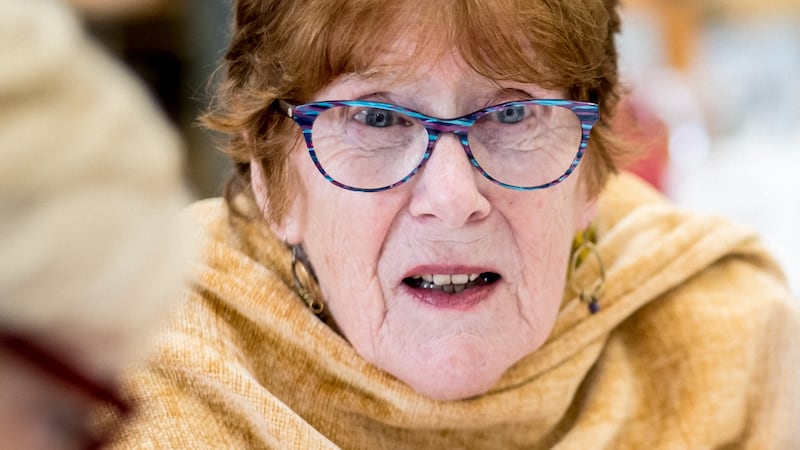There are more than 4,000 children on waiting lists in Northern Ireland for social care assessment with many waiting over a year for help, a report has found.
In his review of children’s social care services in the region, Professor Ray Jones said the longest wait was more than two years.
The report will be launched at a conference due to be attended by 400 people at the Stormont Hotel in Belfast on Wednesday.
Former health minister Robin Swann set up the review following concerns over long-standing issues within the services, including high levels of staff vacancies and many children and families not getting the help they needed.
In his report, Prof Jones said that Northern Ireland has a much higher rate of children being referred to social care services compared with the rest of the UK and the Republic of Ireland.
He also reported that there are a higher proportion of children in the region viewed as in need of help, a higher proportion with child protection plans, and a record number of children in care.
During the review, which started in February 2022, Prof Jones said he had “seen many impressive services delivered by skilled and committed workers”.
But he said he had also heard from children and their families that there is a high turnover of social workers, that children and families are concerned they have not got the help they needed when they needed it, and that the help which is available is not consistent across all areas.
He said: “What has been described to me, and what I have seen, are services provided by the health and social care trusts and by voluntary and community organisations under great pressure, and it is recognised that there are long-standing serious difficulties which span all of Northern Ireland.
“This has had the consequences of help not being available to many families who are struggling and then with more children having child protection plans and with increasing numbers of children and young people being removed from their families and placed in care.”
Prof Jones added: “I am concerned that within the current arrangements, which were put in place 50 years ago, locating children’s social care services within very busy and pressurised health organisations, with big issues to tackle regarding, for example, hospitals, despite the best will in the world it is not possible to give the dedicated and concerted attention needed to tackle the difficulties within children’s social care services and to provide the help needed by children and families.”
“And it is getting worse.
“More families are struggling as poverty is increasing and deepening, and the absence of an Executive and Assembly means that urgent issues, such as the cost-of-living crisis, are not being tackled.
“Big cuts are now being made, with services which have taken time to build, including by voluntary and community organisations, quickly being closed down and children and families left stranded.”
The main recommendation is that a region-wide organisation should be created to deliver children’s social care services and to create the platform to address the significant issues which need to be tackled.

Prof Jones said: “It creates the opportunity to address long-standing difficulties which are worsening and to start to refocus on helping, when necessary, families to care for their children rather than continuing down the road of more and more children being removed from their families.
“And there is an urgency to move ahead at pace.
“Children only have one childhood and the clock is ticking.”
Department of Health permanent secretary Peter May said the department recognised there are challenges within children’s social care services.
He said: “We fully accept that change is necessary if we are to meet the ever-increasing demand for children’s services in Northern Ireland and ensure that children and families get the help they need, when they need it.”

He added: “In relation to some of the report’s recommendations, the department has commenced work to address the challenges facing our workforce.
“In March 2022, we completed a review of the social work workforce and established a workforce reform board.
“A priority for the board has been the stabilisation of the children’s services workforce and I am pleased that significant progress in this area has been made.
“Trusts are on target to end the use of agency social workers by the end of this month.
“A move that will support our key aim of stabilising our social work workforce and bringing about service improvements.
“The other key recommendations from this review will require significant service changes, and in some cases cut across a number of government departments.
“Therefore, these are decisions that will need to be considered by a minister and an Executive.
“In the meantime, my department will undertake a public consultation on the organisational and service changes recommended, and make the necessary preparations for an incoming minister.”



